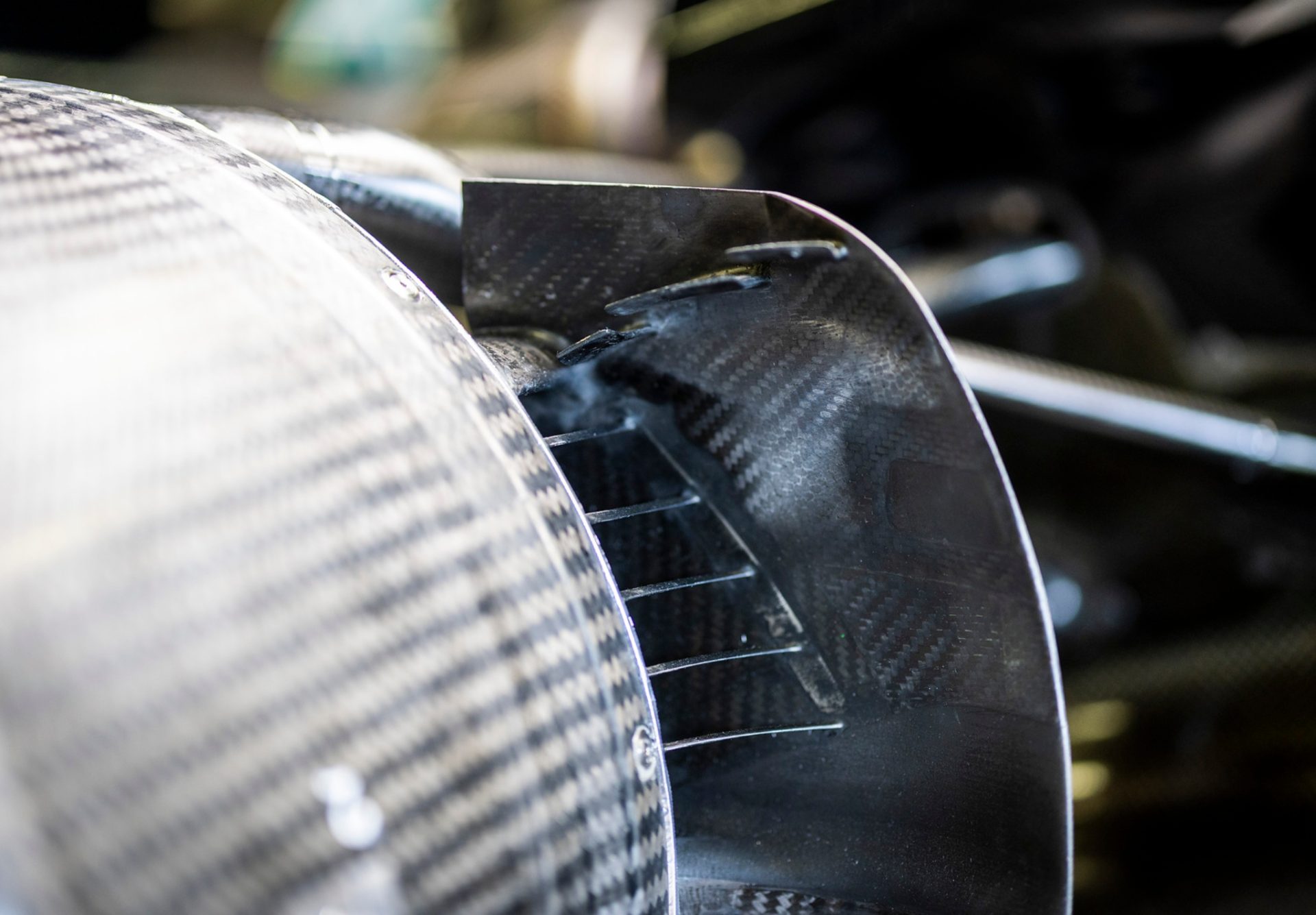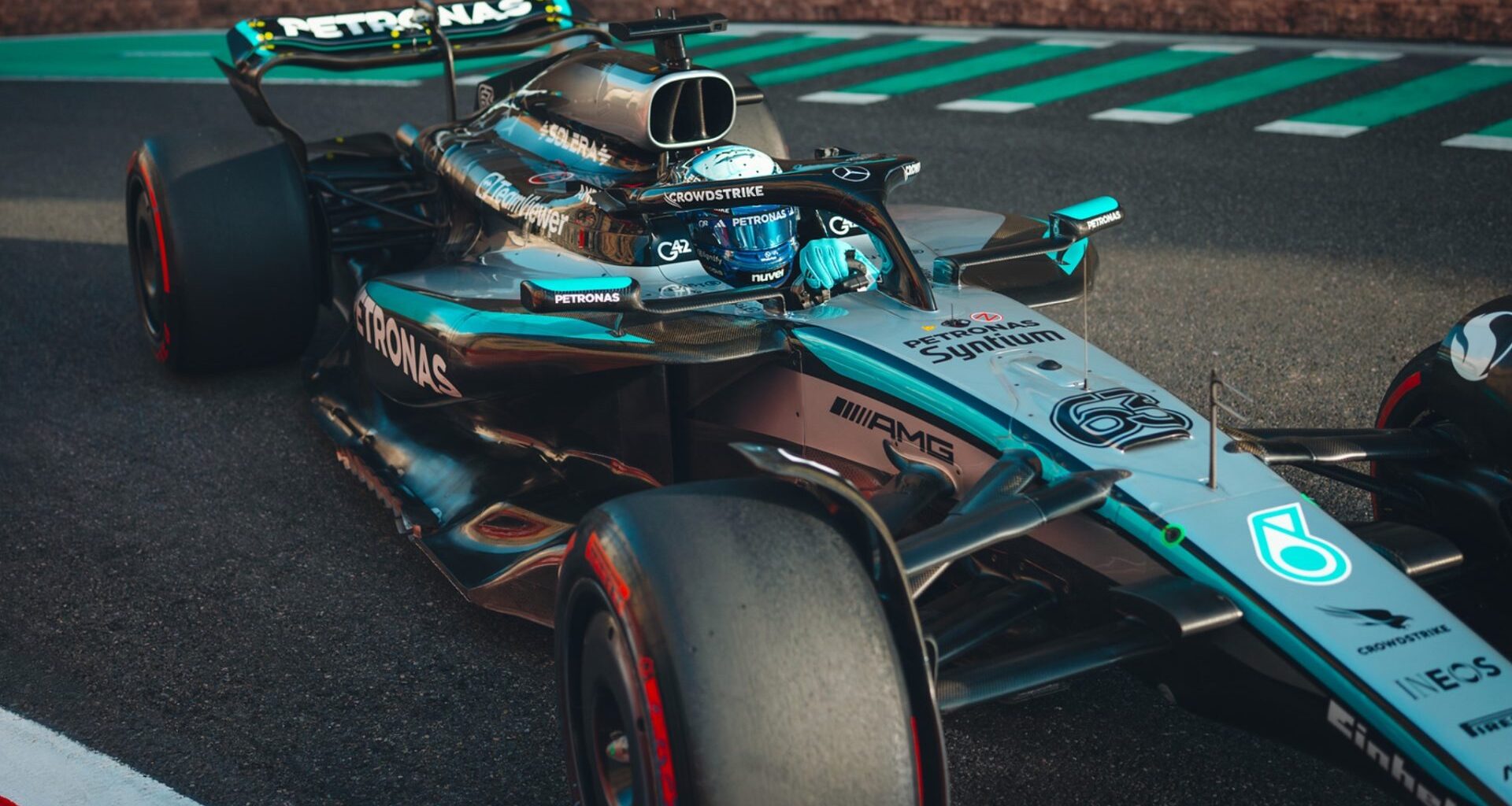This weekend’s Azerbaijan Grand Prix saw the debut of pioneering bio-based carbon fibre composite material on the Mercedes-AMG PETRONAS F1 car, marking the next step in our journey to use sustainable carbon fibre composites.
The Mercedes-AMG PETRONAS F1 Team has announced the successful use of a bio-based resin on the rear brake duct wheel shields of the #63 W16 – which crossed the line in second place at the Baku City Circuit – following efforts to qualify and apply sustainable carbon fibre composites.
This groundbreaking development sees sustainable carbon fibre composites on a high-performance area of our race car for the first time, replacing 30% of the traditional resin material with those derived from renewable sources.
Applying these materials to the rear brake duct wheel shields, with their intricate aerodynamic surfaces, demonstrates the technology can withstand the extreme conditions of Formula One racing, and its potential for widespread adoption across the sport.
This innovative technology is a crucial step in our transition towards a more sustainable sport. It also marks the first time that the team has integrated sustainable carbon fibre composites on a technically performant component in race conditions.
Toto Wolff, Team Principal & CEO, Mercedes-AMG PETRONAS F1 Team said: “In an era where innovation drives performance and shapes industry futures, the pursuit of smarter, faster, and more efficient technologies has become a defining challenge of our time. This project not only reflects our commitment to sustainability but also highlights the role of Formula One as a test bed for pioneering technologies that can benefit a range of industries. Our sport is the world’s fastest test lab, and these innovations represent our relentless pursuit of performance and appetite to contribute beyond the grid.”
Material innovation is a key step to meet our goal of achieving Net Zero across all scopes by 2040. The development of this bio-based material application has been made possible through close collaboration with Syensqo.

The rear brake duct wheel shields on the W16 have been developed using a new resin that includes 30% bio-based materials
Alice Ashpitel, Head of Sustainability, Mercedes-AMG PETRONAS F1 Team: “We are proud to be powering sustainable innovation within Formula One, introducing sustainable carbon fibre composites on a technically performant component. This project with Syensqo highlights our commitment to reduce our environmental impact while maintaining the highest standards of performance. By integrating bio-based resin within a carbon fibre composite material, we are setting a new benchmark for the future of motorsport and beyond. The fact that these materials have been derived from by-products associated with the creation of bio-diesel is an added benefit and indicates the power of advanced sustainable fuels.”
Rodrigo Elizondo, President, Syensqo Composite Materials: “We are pleased to see our project with the Mercedes-AMG PETRONAS F1 Team come to life on the W16 race car. Our bio-based resin technology represents a significant step forward in sustainable materials innovation. By replacing traditional petroleum-based components with those derived from renewable sources, we are not only introducing circularity in our product design but also paving the way for future innovations. We are very pleased to see this material applied in such a high-performing environment, showcasing its potential for broader applications.”

